
25 Best Titles to Use on Real Estate Ad Portals
...
Is a CMS on a real estate developer's website a necessary tool or just a luxury add-on?
More and more real estate developers are wondering whether it's worth investing in a CMS on the website.
Is it really necessary, or just an add-on for more demanding users?
In this article, we'll show when a content management system is a necessity, when you can do without it – and what you actually gain by having it on the property website.
A CMS (Content Management System) is a software that allows you to create, edit and organize content on a real estate developer's company website and property development website. With CMS, you can easily manage content such as text, 3D visualizations and other elements of the site, without programming or advanced technical knowledge.
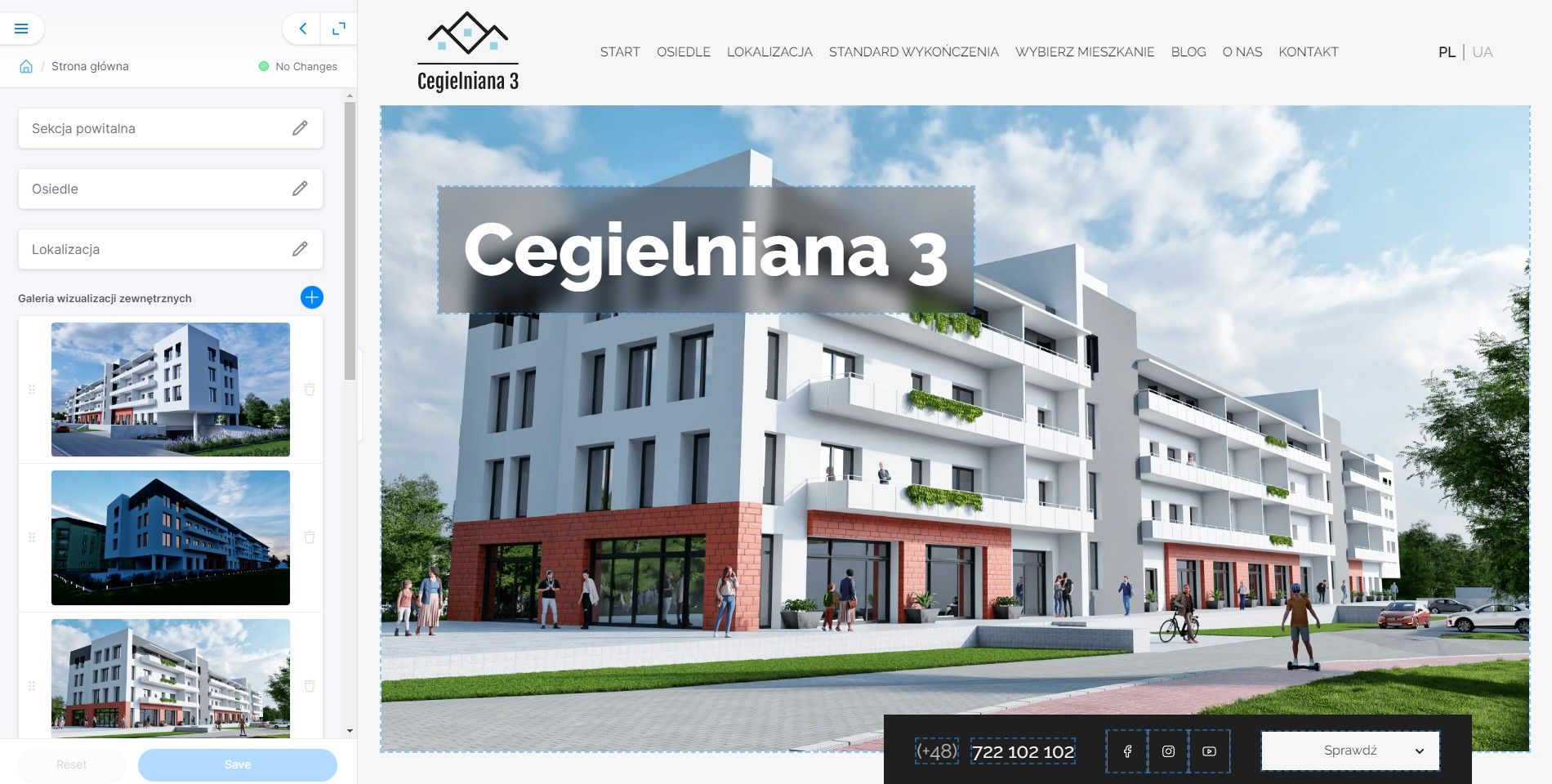
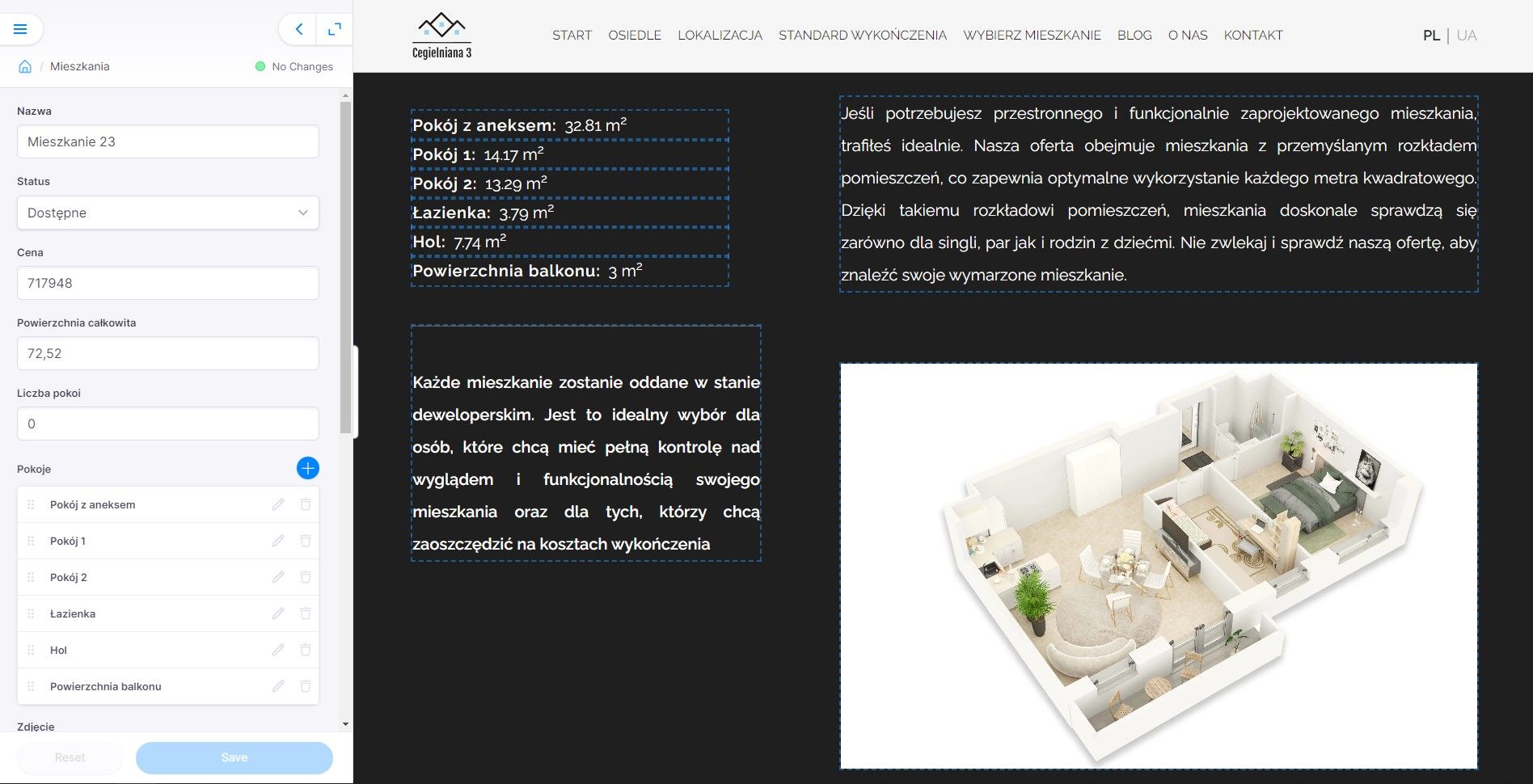
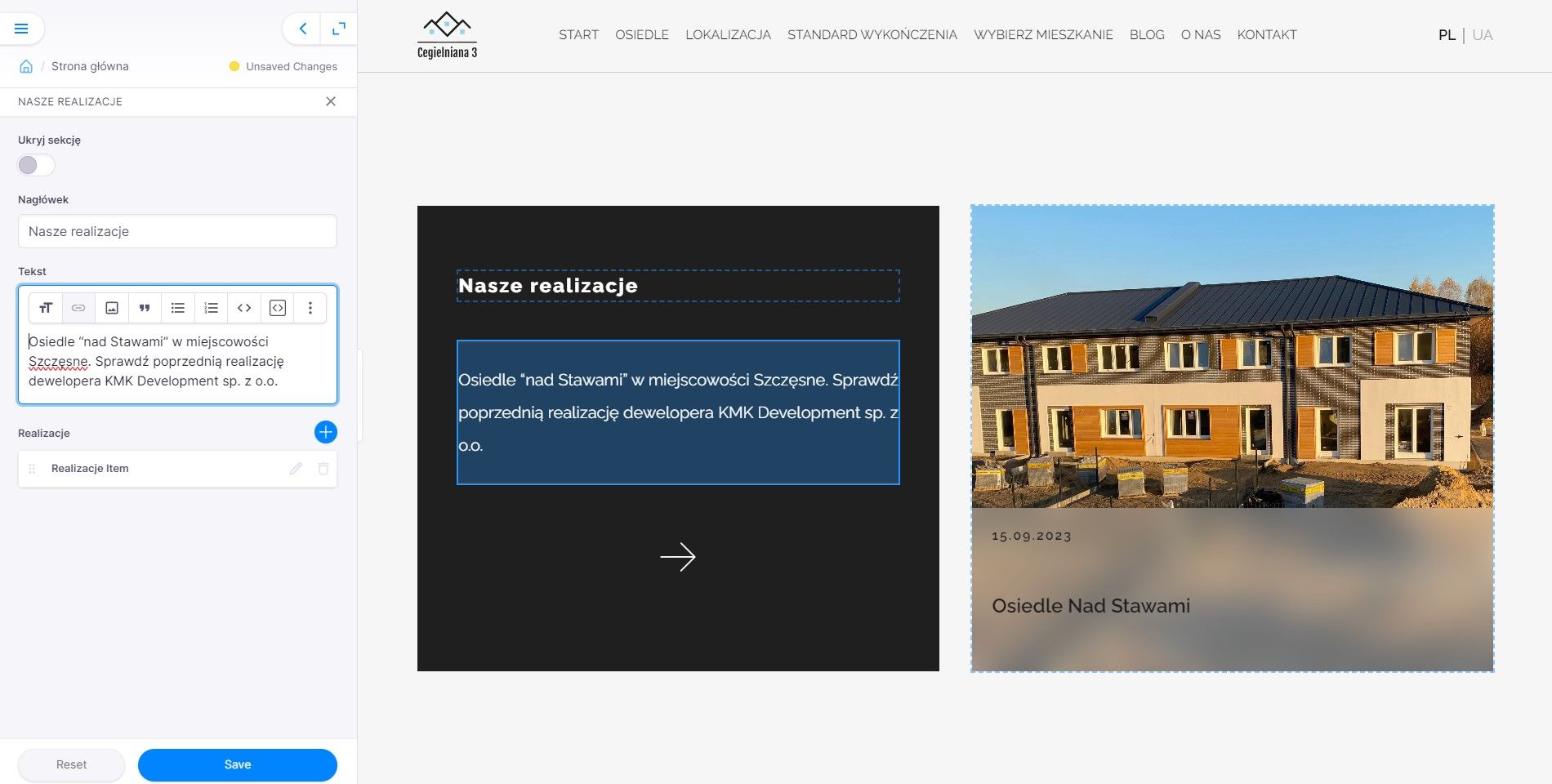
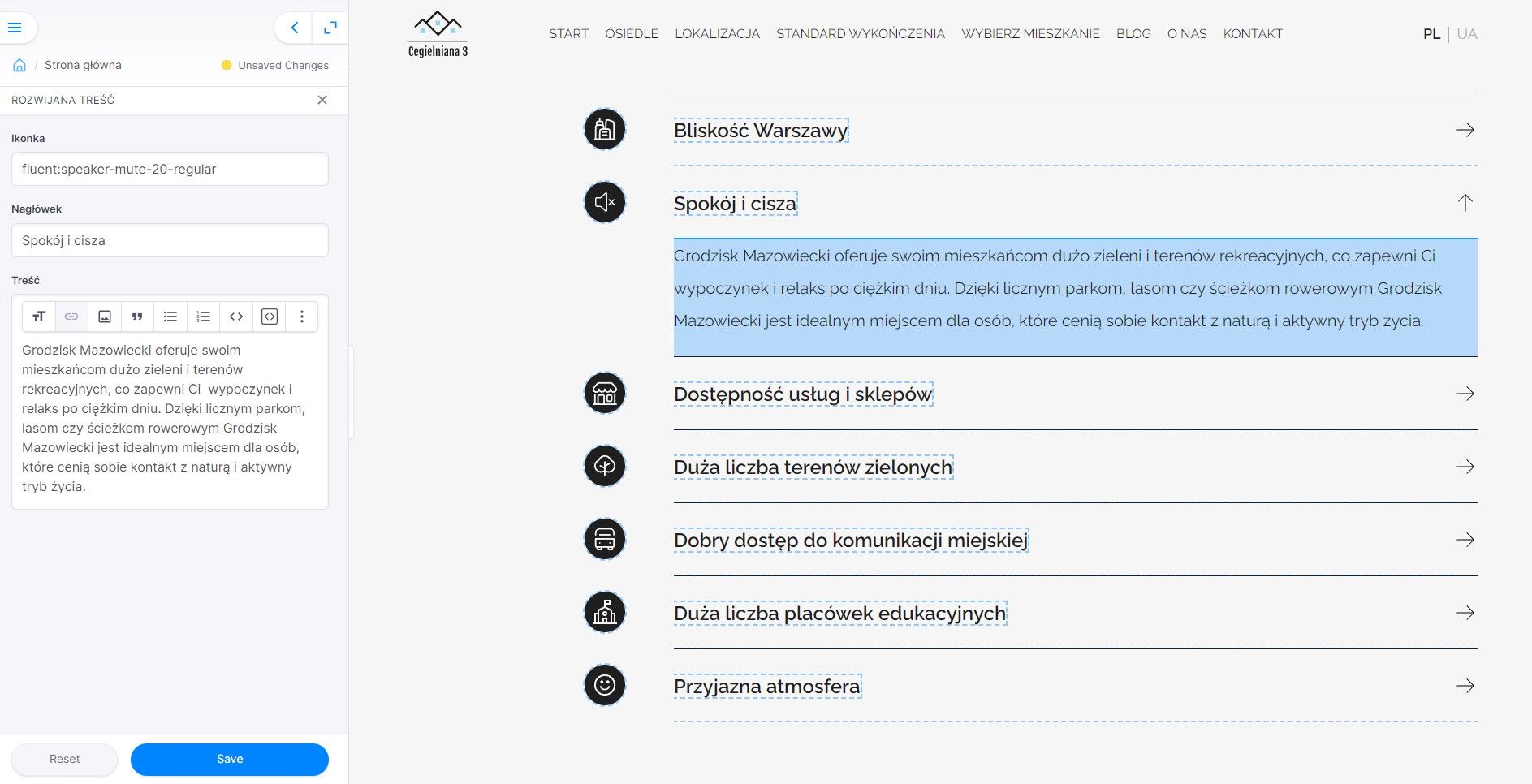
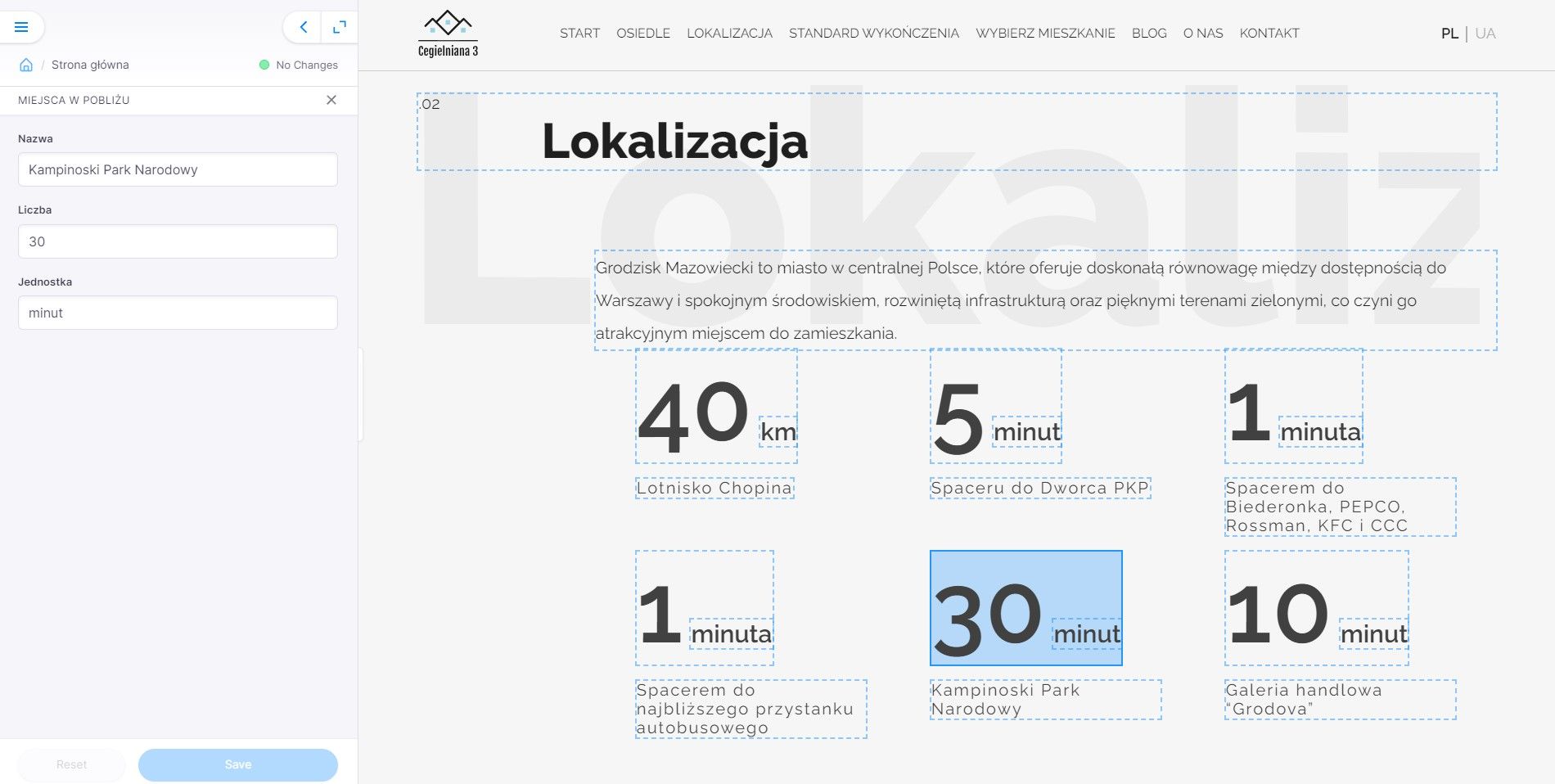
Quickly update project information: With the CMS, a real estate developer can instantly update property availability information, change prices, add new projects and remove outdated listings.
Easy content personalization: CMS systems make it possible to customize the content of the site according to the current needs and preferences of customers. A real estate developer can tailor content to different target groups.
Quick response to market changes: In a dynamic real estate market, a real estate developer can adjust offers and promotions immediately, which helps to stay competitive.
SEO optimization: CMS systems often offer search engine optimization (SEO) tools to help position a real estate developer's website in search results.
Improving communication with customers: A real estate developer can use a CMS to manage contact forms, newsletters and customer information, which helps improve communication and build trust.
Security and access control: The CMS allows managing access to the system, which is important for important project information. A real estate developer can control who has access to edit content.
Scalability: If a real estate developer's business grows, CMS systems allow the developer to easily add new content, projects and sections to the developer's company website, making it easy to scale the business.
For property development projects with limited budgets, the main goal is often to provide information about the development in a clear and accessible way, without the need to implement an advanced interactive preview of unit/apartment availability or create custom site layouts.
In such cases, instead of investing in an elaborate CMS system, it may be more economical to use simpler tools to create a website or use ready-made templates.
If a real estate developer's company website will only contain basic information, such as contact information, previous developments and a brief current offer, using a full CMS may be overly complicated and expensive.
To keep your site secure, take care:
In this post we looked at the role of content management systems (CMS) on real estate developers' sites . Analyzing the benefits, advantages and limitations of CMS systems, one can conclude that the answer to the question of whether a CMS is a necessity or a luxury depends on the specific context and needs of the project.
CMS systems can greatly facilitate content management and property promotion, but they are not always necessary for every project. The key is to find a balance between functionality and desirability in the context of your specific development project.
A CMS (Content Management System) is a content management tool that allows easy website editing without programming knowledge.
It allows you to quickly update information about the property investment, change photos, add new listings – without involving a developer.
It should offer an intuitive content editor, image management, form handling, SEO optimization, and scalability.
It makes it easier to set titles, descriptions, URLs, and tags, which improves the website's visibility on Google.
With a CMS, you can easily manage contact forms, newsletters, and news updates.
Yes – it allows for backups, updates, and access control for different users.
When the site is static and you don't plan frequent updates – in that case, a CMS might be unnecessary.
First, you define your needs, then configure the system, transfer content, test it, and launch the website.
It's crucial – testing checks functionality, security, and compliance with project assumptions.
The ability to easily add new sections, property investments, media, or functionalities without redesigning the website.
Yes – it's good to have someone responsible for updates, security, and backups.
Photos, videos, 3D visualizations, PDF documents, apartment floor plans – all can be added and edited independently.
Yes, you can tailor content to the user's location, language, or stage of the property investment.
For simple websites with basic information and rare updates – a CMS may be an unnecessary expense.
A CMS on a real estate developer website is convenient, time-saving, and gives you more control – but it's not always essential. It all depends on the needs and scale of the property investment.
Book a free consultation.
Sign up now for our free RendProletter and receive 1 email every week with a short summary of the best posts from our blog and emails with unique offers you won't find anywhere else!